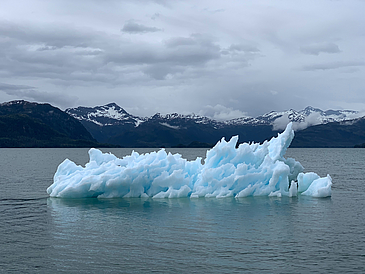The IUCA members are working on identifying and implementing the most effective ways of communicating scientific findings on climate change to the public. The universities, which also include King’s College London and the California Institute of Technology, are particularly active in the areas of climate change research and its effects and also strategies for CO2 emission minimization.
Strong interdisciplinary approach
The climate network profits from the strong interdisciplinary approach of the participating universities’ research. In this way, the current research status can continually be made accessible for important decision makers in politics, the economy, and education so that quick and founded action can be taken.
“The universities play an important role for the development of climate research and the furthering of solutions in society,” emphasized Professor Bernd Scholz-Reiter, president of the University of Bremen. “I am pleased that we are creating a network with IUCA that is strengthening climate research across the globe. The University of Bremen supports IUCA because we are able to contribute our expertise from the field of climate research to the mission to communicate the scientific findings worldwide so that science becomes even more visible. We need such alliances as they increase the visibility of scientific work in climate research.”
Professor Michael Schulz, director of MARUM – Center for Marine Environmental Sciences at the University of Bremen, also welcomes the cooperation between the universities: “We can only do something about the climate change that has been caused by humans if politics, society, and science work together. This is only possible when science and its results are heard and understood. I support the IUCA because it is important that we communicate our research findings.”
The network was initiated by the University of New South Wales (UNSW) in Sydney. Due to the devastating bush fires in Australia, the effects of climate change are particularly tangible there. But also floods in other parts of the world are visible consequences of developing global warming. Ian Jacobs, the president and vice chancellor of the UNSW Sydney, is sure: “This new alliance will be right at the fore of the worldwide discussion on climate protection.”
Despite the coronavirus pandemic, the members have decided to not postpone the establishment of the climate alliance as the necessity of quick climate-based political action is still there.
Contact:
Prof. Dr. Bernd Scholz-Reiter
President of the University of Bremen
Phone: +49 (0) 421 218-60011
Email: rektorprotect me ?!uni-bremenprotect me ?!.de
Prof. Dr. Michael Schulz
MARUM – Center for Marine Environmental Sciences
University of Bremen
Phone: +49 (0) 421-218-65500
Email: mschulzprotect me ?!marumprotect me ?!.de
Further Information:
www.universitiesforclimate.org
www.uni-bremen.de/en/
www.marum.de/en/

